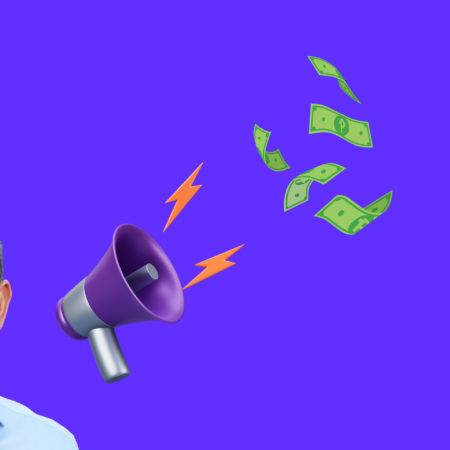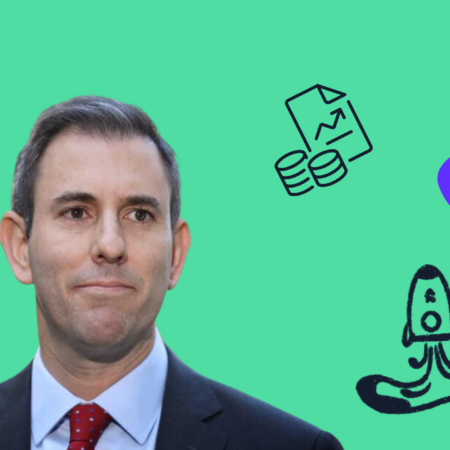How Inflation Affects You and Your Business
We aren’t sure what’s worse: ‘pandemic’ or ‘inflation’? Either way, the latter is 2022’s current buzzword which is the bearer of unfortunate news for our back pockets. Whilst there’s a lot of chatter about the price of lettuce going up, there’s not so much about what inflation actually is and how it may affect your business.
Here’s what you need to know.
What does inflation mean, and why does it happen?
Essentially inflation is when there’s a price increase on goods and services and a fall in the purchasing value of your money.
A simple example is that your usual grocery shop may have been in the ballpark of $200 and all of a sudden you can’t get the same basket of veggies and vegemite for less than $220 – the price of goods has gone up and the value of your money doesn’t give you the same purchasing power.
There are several factors that can influence and cause inflation including:
- Increased money supply (remember all the money the government was handing out during the pandemic? That adds to it!)
- Devaluation (decrease in economy exchange rate – anyone who’s been to Europe or the US lately will feel that pain)
- Rising wages (again influenced by a serious lack of labour supply since the pandemic)
- Demand-pull inflation (this happens when the demand for goods and services is greater than the ability for an economy to provide)
- Cost-push inflation (increase in prices when wages and materials go up)
- Policies and regulations (government tax policies, border tariffs etc.)
As you can see, the last few years have seen a combination of factors perfectly combine to create an environment ideal for a big inflation hike. Similar to la nina and the current mosquito population…
Should I be increasing the prices of my product or service?
This question is a common one because raising prices when people have less money to spend may seem counterintuitive, or like you’re adding to the problem. Whilst everyone’s circumstances are different, the general rule of thumb to follow is that if your business expenses have gone up – think wages, materials, rent – then YES you should absolutely be increasing your prices. Otherwise, you need to be comfortable with those shrinking margins and the effect that has on you and your family.
What’s the best way to approach a price increase with clients?
Remember your 3C’s: communication, context, clarity. No one likes surprise price rises without an explanation or some form of value exchange. Give your customers notice, provide a brief explanation and offer a more in depth conversation if that makes them feel comfortable. If you’re providing value and great service to your customers a price rise shouldn’t be a huge issue however we’re all aware of the increased financial pressure at the moment, particularly with the rise of interest rates. Treat carefully and ensure the price increase you have factored in is not going to be the difference between a sustainable business and one that starts going backwards.
If you can explain your decision with the backing of numbers for those concerned clients, then you’ll find people to be generally understanding.
If I increase prices when clients are already tightening purse strings, couldn’t this lose me income?
Yes, definitely. It’s a hard one to balance but at the end of the day you need to do what is required for your business survival and to ensure you can continue to cover your costs and meet the necessary margin in your business.
If your costs have increased then it’s only fair and reasonable that your prices need to increase. Most business owners haven’t increased their prices in years. Another classic scenario that we see with our own clients is that they’ve been undercharging for a period of time and often their customers will know it. It comes back to value – if what you’re providing is excellent, and the price increase is fair, the customers that matter will stick with you.
How may inflation affect small business?
Inflation can affect small business owners in a number of ways. Rising prices for goods and services can increase your operating costs, which can make it more difficult for them to turn a profit. Additionally, inflation can also reduce consumer purchasing power, which can lead to slower sales for small businesses.
In 2023, the inflation rate will be (and already is) higher than the historical average due to various factors such as the COVID-19 pandemic, government stimulus spending and supply chain disruptions. How much the inflation rate affects small business owners will depend on the specific industry they operate in, as well as their ability to adjust their prices and costs in response to inflation.
It’s important for small business owners to regularly review their financials, budget, and pricing strategy, and make adjustments as necessary to mitigate the impact of inflation on their business.
This can be particularly challenging for small businesses that operate in industries that are sensitive to inflation such as retail, manufacturing, and transportation. For example, small retailers may see their costs for goods increase, while transportation companies may see their fuel costs rise.
Any other important bits?
Don’t just look at price increases as the silver bullet to surviving inflation. Review your own budget and outgoings. You may find ways to decrease your expenses or lock in prices with your own suppliers.
Another trick used by the big corporates is “shrinkflation”. This is where the good/service remains the same price, but you remove/decrease it slightly. For example, you might be a massage therapist who charged $80 an hour earlier this year, but you’ve shifted that to 45 minutes. That extra time in the day means you can fit an extra appointment or two in and then everyone’s happy.
Questions or concerns? You know where to find us!













